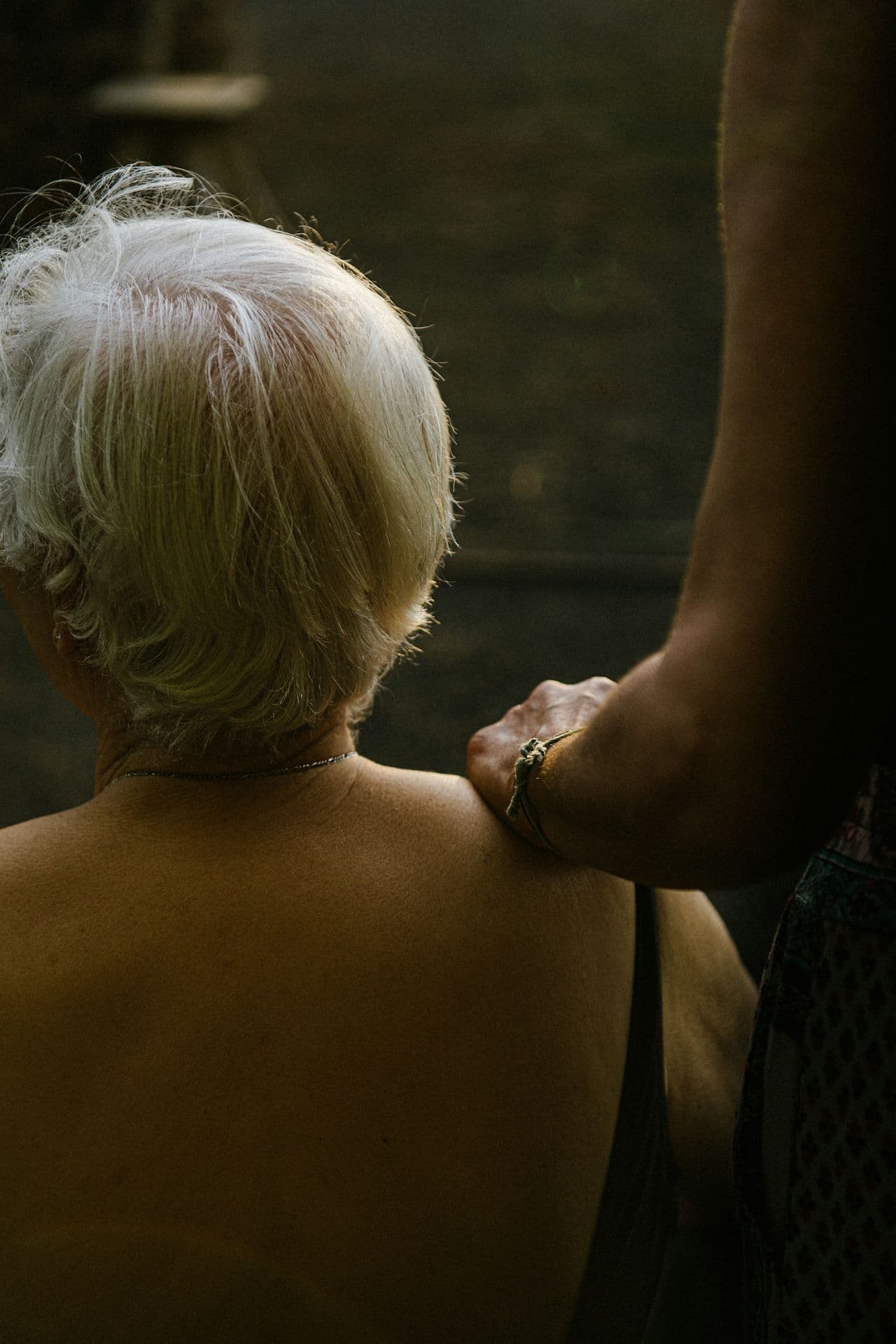We’re so sorry you’re here. You’re now a caregiver for someone you love, at one of their most vulnerable times, and that vulnerability and fear is completely contagious. This is the hardest place to be. So many of the experts we’ve spoken to say that this news often hits you, the caregivers, the hardest.
Here are some first steps to take when your loved one has been diagnosed with cancer.
Bear with us, but take a big, deep breath, another, another, another
Being a support person for someone with cancer will be physically and emotionally taxing. Be as kind and graceful with yourself as possible throughout this process. A lot is going to change in the current relationship between you two. We know this is really big; and we know (via the evidence that you’re reading this) that you’re going to do it really well.
Discuss what caregiving role you’ll have
Your role as a caregiver is going to depend on many factors, including the diagnosis, the type of treatment they’ll receive, their age and other health factors. No matter how much help you think they’ll need, you first need to know how much help they’d like.
Julie McDermott became her daughter Lauren’s caregiver when Lauren was diagnosed with hormone-driven breast cancer at 22. “As much as I would want to just take over, I think it's important that you really listen and be patient,” says Julie. Because Lauren was finishing college and was on the path to full independence, Julie wanted to make sure that she wasn’t overstepping boundaries with her daughter when she moved back home for treatment.
“We set out clear roles,” Julie says. Julie was responsible for taking notes at all the doctors’ appointments, scheduling, and making phone calls.
Some helpful things to ask them: Can you help them communicate about their diagnosis to the rest of their friends and family? Can you help them do paperwork? Do they want you at the appointments? Can you organize their meals, laundry, domestic tasks?
Make a list of what needs to be done
Making a list–with your loved one or on your own–can be a way to tame the overwhelm and make an organized plan. Your list can be what you need to do, what other people can do, what your loved one needs to do. This can help you prioritize and outsource (more on that below).
If you’re helping with appointments or insurance, get designated
Taking something off your loved one’s plate (especially something stressful and time-consuming) can be one of the most helpful things you can do. If they want you to make calls to insurance or their doctors on their behalf: get copies of their insurance information, ID, scans and diagnosis information, and make sure you’re designated as their authorized representative. That way, hospitals, doctors, and insurance can release medical information to you. You can get referrals, talk to billing departments, or ask follow up questions on their behalf.
There is a lot of administrative work that goes into care, and taking responsibility for this can be a huge, huge help. If there are multiple people helping, make sure you set up a good system for relaying information.
(Some advice for initial doctors appointments here.)
Prepare for the time involved
Becoming a caregiver will likely involve a lot of your time, so expect changes in your daily routine. You can get support from people in your life; you should ask for it, and you should accept offers (see below).
Depending on how much of your time will be involved with supporting your loved one, you can consider FMLA leave from your job to attend appointments or help with recovery (these days do not need to be concurrent). If you’re not the primary caregiver, some of the best things you can do is coming to hang out, or running an errand. Sit and chat, wash their dishes, pick up necessities (or treats!) for them and deliver things to their house. If you have only two hours free on a Tuesday night, that’s enough to do something– just say it’s theirs.
Ask for help before you need it; accept help that’s offered
Recruit help from family and friends and accept help when it’s offered. No one person should be expected to do everything for another person; even if that’s what you want the most (read our interview with author Elizabeth Gilbert on caregiving here).
You can ask your support network to help not just with your loved one, but also with your own needs. For example, if you’re spending all day in the hospital helping your sister, you can ask another family member to pick up your kids from school. We have a list of actually actionable tasks you can assign people who want to help (if they say they want to help, take them at their word!).
And if people in your community send meals or offer to help with household duties, let them.
Maintain social connections and make time for yourself
This is crucial to keep yourself healthy. You know that you can’t pour from an empty cup, but it’s really really true. “Think about what has helped you through other difficult times and see if you can return to that,” says Kelly McClure, a Philadelphia-based psychologist with a PhD in clinical and health psychology. Go on an indulgently long walk, see your friends, sign up for a luxe cheese and wine tasting. Caregiver burnout is very real, and the more nice things you do just for you, the more you can avoid it.
This is a really incredible, hard, scary, intimate thing you’re about to do. Take care of yourself, and you will have so much more to give to take care of the person you love.
There will be days you want to cry in bed, and days you’re in a super-human mode and checking everything off the to-do list. You may feel like you’re doing everything wrong, you may snap at a total stranger at the grocery store, you may feel like you have no idea what you’re doing when you’re months into ‘taking charge’. Remember that you and the person you love are both going through this together; and there’s no one way to do it for either of you.









